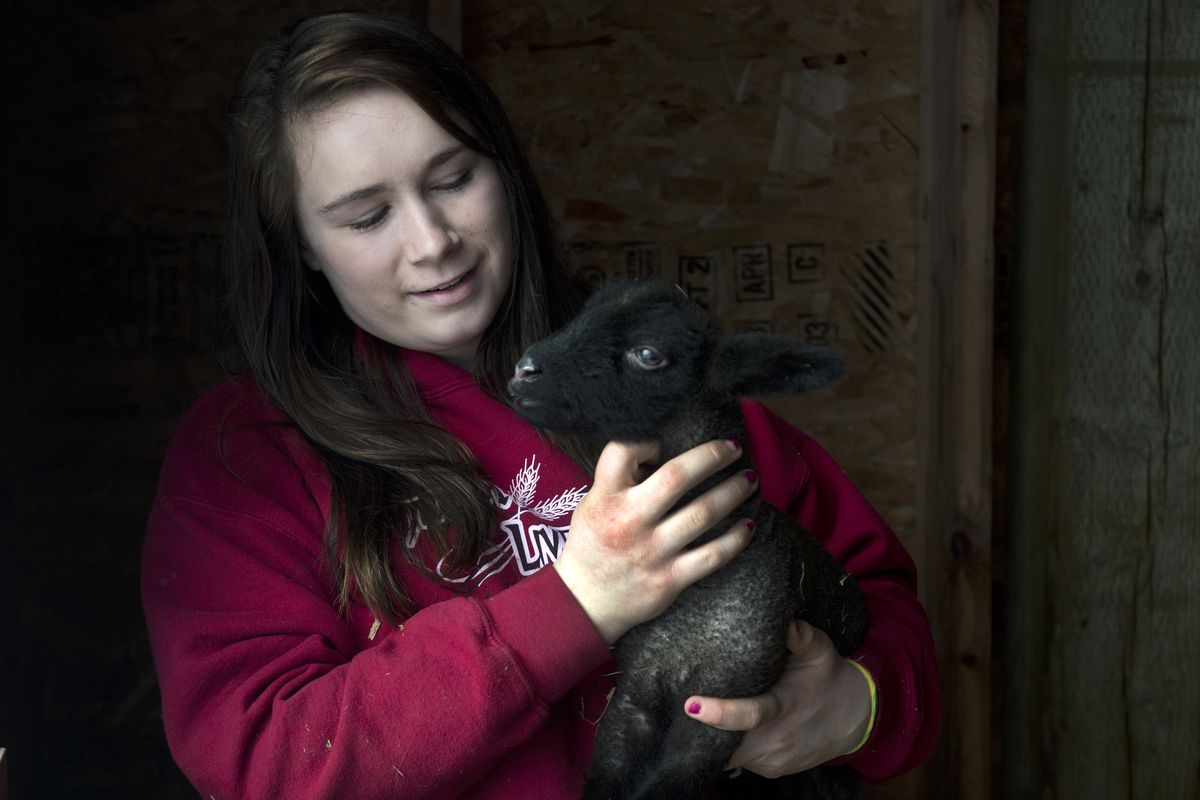Looking ahead: FFA keeps its focus on the future

Alyx Hanson runs lambs up and down a country road instead of joining other high-schoolers in softball, golf or track.
The Elk teen has bypassed spring sports for years to focus on feeding, exercising and bonding with farm animals. Her goal: showing, then selling the livestock to earn money for college.
“With the money I’ve made, I’ll be able to pay for one year of out-of-state college,” said Hanson, who joined 4-H at age 9 and has been banking money ever since.
The 18-year-old will sell lambs in May at the Junior Livestock Show of Spokane, a program that supports FFA and 4-H programs by providing a venue for young people to exhibit and sell their animals. The show, once the largest junior livestock sale this side of the Mississippi River, has shrunk in the past decade.
Last year, 249 hogs were sold, down from 448 hogs 10 years ago.
Fewer farms and a diminishing emphasis on agriculture in Spokane County are two reasons for the decline. Dwindling agriculture programs, such as FFA, are another contributing factor, said Jeff Sevigney, the Junior Livestock Show president.
Formerly known as Future Farmers of America, FFA has programs offered in few Spokane-area high schools. The elective that used to be an option in all Spokane Public Schools high schools is now offered only at Ferris and Shadle Park high schools. Central Valley School District hasn’t offered FFA for at least a decade. Mead School District offers FFA at Mt. Spokane High School.
“That’s a local issue,” said Jodi Monroe, executive director of FFA Washington Association. “That has to do with school boards or superintendents or career and technical education directors. Outside of Spokane the numbers are rockin’ and rollin’. Deer Park has a program. Cheney does a hell of a job.”
Freeman and Liberty school district high schools, both located in rural areas, also offer the program.

Despite its decline in Spokane County, FFA has maintained its membership nationwide by paying attention to changes in agriculture. Rather than focusing on just cows and plows, FFA study programs are broken out into eight career pathways: animal systems; agribusiness; food products and processing; natural resources; environmental services; power, structural and technical systems; plants; and biotechnology.
There could be resurgence in youths working with livestock as more cities allow urban farming, Monroe said. “Instead of pulling it from family livestock, they are purchasing it from someone else.”
Spokane’s planning commission is likely to consider a proposal later this month that could allow people to raise goats, sheep and small pigs in their backyards.
Nevertheless, as an organization FFA has its eye on what it stands for, Monroe said. “There are fancy mottos and such, but the bottom line is preparing students for the future.”
Dede Cotter, a Mt. Spokane High School FFA member, is a fourth-generation Junior Livestock Show participant. Tradition brought her into it, she said, but she continued because she fell in love with it.
The show gave her an opportunity to practice public speaking and save money for college, she said.
Cotter, also a 4-H member and leader, said the No. 1 lesson she’s learned by being in all three programs is responsibility. Taking care of livestock takes time, hard work and planning. The 17-year-old also is raising a heifer to breed, which will lead to business skills.
At this year’s Junior Livestock Show, Cotter hopes to sell a pig and two lambs. Hundreds of kids will be there with her to participate.
Said Sevigney, “It’s important to keep this going for the kids to provide a real-life experience.”